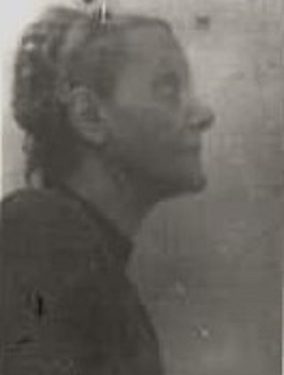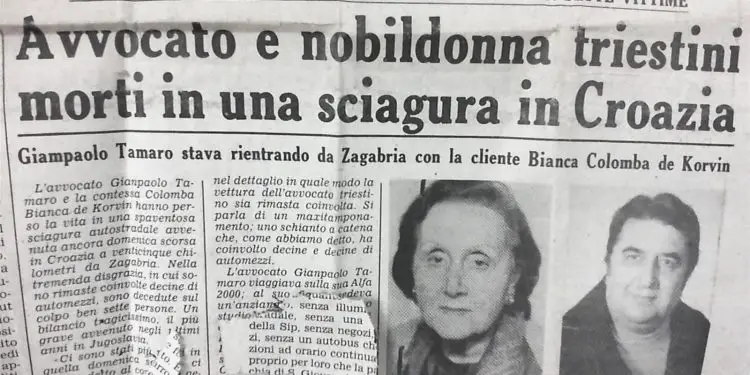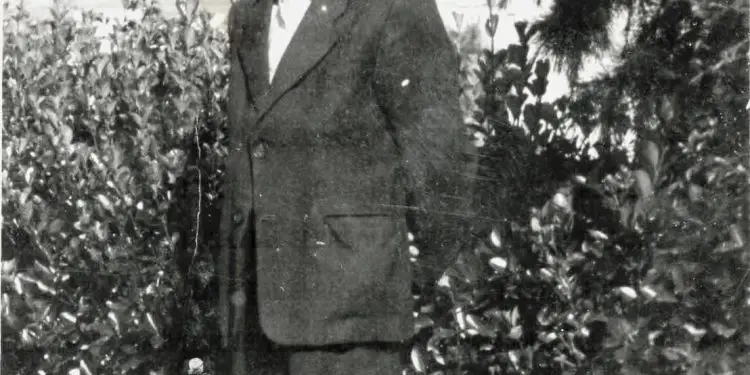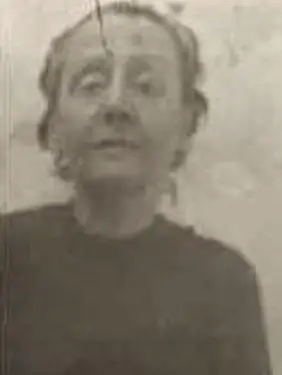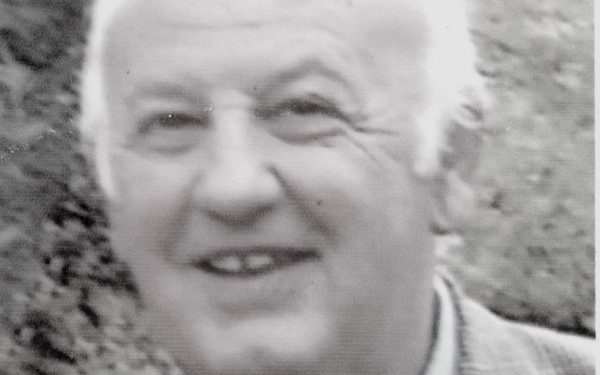By Ani Jaupaj
– The confession of the well-known guitarist Alfons Balliçi, about his uncle’s Austrian wife, who suffered 11 years in communist prisons –
Memorie.al / The truth about the life of the Austrian journalist and countess, Bianca de Korvin Balliçi. How she left Vienna to follow the man of her heart, the arrest in 1946 as an agent of the Anglo-Americans, the years in prison and then the years of psychiatry. Her husband’s nephew, the well-known musician Alfons Balliçi, told how he got to know the countess, the shared passion for music and the silence about the events of the prison, after the release. The correspondence and aids she sent. How many times do you meet characters from a time that you’ve only read about, even a detail sticks in your mind? I don’t forget, for example, when the daughter of Eqrem bey Vlora told me about her mother, that she refused to move her life to Vienna, just because the windows, with double glazing, created steam in the space between them.
It bothered him. This was not the sight he wanted to see every day. This detail sticks out, because it shows the possibility of those people to choose and to be incredibly self-sufficient. Today’s character may have had her own atmospheric whims, but she left Vienna, her country, as they say, for love.
Bianca de Korvin, married an Albanian, Adem Balliçin, from whom she later took her last name. Those who knew her, surviving family members from the family where Bianka married, show that in Austria, she was married to a count.
Therefore, as it was customary to act in front of a countess, in Viennese dinners and salons, the guests rose to their feet as soon as she entered. All this luxury of worldly life was turned upside down once he settled here. As it happened, the end, also with Vloraj. In Albania, the few people who could, like Bianka Balliçi, have known him.
The Austrian journalist, who even after moving continued to work as a correspondent for a newspaper in her country, lived very little free time in Tirana. Accused of being a liaison between the Americans and Albania, Bianka was imprisoned and horribly tortured by the communist regime. The files say that her spine was broken, and that her condition reached the point of insanity. She left Tirana, half dead.
Alfons Balliçi does not remember this monstrous scene of her escape. The well-known guitarist was the son of her husband’s brother, Adem. They lived together for a few years in Elbasan, when he was still a 17-year-old boy, passionate about music. What Alfonsi remembered, he tells us himself, although he constantly insisted, telling us that his memories have not faded, from the years that have already passed for him.
Mr. Alfons, how do you remember Bianka Balliç?
Many years have passed and life has taken its course, but I remember Bianka, because I was not very young when she left Albania. She married my uncle, Adem Balliçin. He went to study in Vienna, where they met and got married. They lived there until they were forced to return in ’44. As they said after returning, Bianka had once been married in her country to a count and, after his death, she had married again to Adem. I was impressed when he came in the early days, because he knew music well and played the piano. Since I was fond of the guitar and had started working with him since the age of 4, it was often a topic of conversation for us. Of course, as much as we were allowed, because Bianka did not live long in freedom. He was imprisoned in 1946.
On what charge?
Just the fact that it was foreign, as you may know from many similar cases, was enough to be targeted. But concretely it was accused, as; “collaborator of the Kneta i Maliqi group”. I learned these later, because at that time I could not understand them.
However, you could tell she was a different woman from the others, if only by the fact that she played the piano…?!
Yes, it impressed you immediately. She was a woman with a great spirit and this was proven for us even after her escape from Albania. He continued to correspond with us, we exchanged letters. He also sent gifts. I remember some coats and jackets he sent to some of the family members. She started me some Chopin scores, which were used, so it seemed they were hers. I saved them; I still have them today. Also, shortly after leaving, he sent the money to build Adam’s grave.
And when he was here, what was your relationship with him? For example, did you visit him in prison? Maybe not you, but the father…?!
No, we didn’t do that. Only uncle went. This was a topic that had been discussed in our family and was well understood by him. That’s how things worked back then, you couldn’t get involved, because you suffered it yourself. But after leaving prison, she came to us again, until she left for Italy and then to Zagreb, where she had one of her sisters. Meanwhile, the uncle had died.
Did he tell you anything about what he had been through in prison? Do you remember anything?
I especially remember that the word he used most often after leaving prison was “terrible”. He said it about anything. The torture they had done in prison had been like that. His hands were still black from the marks of the handcuffs and asking him to talk about the prison was like opening the wound again. Leave this conversation, he said. On the one hand, he was right, even though there wasn’t much to talk about.
Because Security was still under surveillance…?
It occurs to me that yes, it was definitely filed. I remember what he ordered me not to talk about this issue, not a word, but not to talk with him either, because he didn’t know.
In fact, were you penalized for this?
I was denied the right to study at the Lyceum, despite my outstanding results, which were absolute. I had been playing the guitar since I was 4 years old and it was not my fault that I was cut out for it. So it was only for this reason. But extreme measures, such as deportations or others, no, because I told you that we stayed almost at a distance.
When they came from Vienna where they settled, where did Bianka live with Adam?
They got a house next to the American Embassy. It was a cottage, which she left to us after she left.
It is said that the location of the house was not accidental. That it served him to be near the embassy…?!
I don’t know how to tell you this.
What about the torture that was done to him in the Psychiatric Hospital of Elbasan, do you know anything?
No, this was not said at the time. He was definitely tortured, but we knew that he was in prison, where he spent 11 years. Memorie.al




